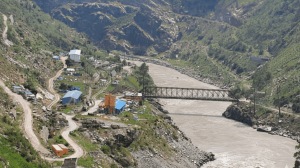The abrupt dissolution of the Standing Committee on Statistics (SCoS) took him by “surprise”, but former Chief Statistician Pronab Sen, who headed the panel, told The Indian Express that he is not upset as the decision indicates that the National Statistical Commission (NSC) is finally “reasserting” its authority, which could initiate “a process of depoliticising data”.
The NSC, established in 2006 based on the Rangarajan Commission’s recommendations, serves as the autonomous watchdog intended to ensure the quality of the country’s official data. It had been largely defunct for years, as the government failed to fill vacant positions after members quit in 2019 in protest against the non-publication of jobs data. The NSC regained its full complement of five members only this year.

The Ministry of Statistics and Programme Implementation (MoSPI), in its July order, had justified the dissolution of the Sen-led SCoS on the grounds that its work was “overlapping” with a steering committee set up by the NSC to oversee National Sample Surveys.
In an interview with The Indian Express, Sen acknowledged that he had no prior warning of the decision and only received an email in mid-July informing him.
“I received an email stating that the Standing Committee (SCoS) was being dissolved due to an overlap with an NSC subcommittee. This surprised me, as the subcommittee was only overseeing one survey, whereas the Standing Committee covered the entire range, with no mention of what would happen to the other ongoing surveys,” he said.
When asked if he sought more clarity from Ministry officials regarding the decision, Sen said he did not. Despite his initial surprise, Sen said he was happy with the development, as it could mean that the NSC is reaffirming its authority and reestablishing distance from the government.
“I was happy because, at long last, after a gap of maybe seven years, it appeared that the NSC was reasserting its position, which is very good news. Because again, what you are doing is you are starting a process of depoliticising the data,” he said.
Story continues below this ad
Asked if he was alluding to the politicisation of the country’s official data under the incumbent government, Sen said, “Yes. If the rumours about data being sent to NITI Aayog or the Cabinet Secretariat for vetting before release are true, then that is politicising data.”
“This change could take things in a more positive direction, establishing the distance between… data and government,” he said.
Formed in July 2023, the SCoS was intended to advise the Union government on survey methodology, including aspects like sampling frame, sampling design, and survey instruments, as well as to finalise the tabulation plan for surveys. In its one year of existence, Sen noted, the SCoS consistently highlighted delays in conducting the population census and economic census.
“You see, all surveys draw their samples from the Census data. Over time, as we move away from the date of the census, the samples become less and less representative, and we are all aware of this,” Sen explained.
Story continues below this ad
The issue is that the census process takes around two years, and we were getting further and further from the most recent data. Anything done after 2024 would become more unreliable than we anticipated. Not having a census doesn’t just mean missing a count — it affects almost all data we have about the population in India,” he said. “If the analysis we conduct is based on faulty survey data, then our decisions will also be wrong. That’s the core of the problem.”
Sen said that in all SCoS meetings when this issue was raised, the representatives of MoSPI did not have any concrete answers on when the government was planning to start census work.
Asked if the Standing Committee’s consistent flagging of concerns over census delay had anything to do with its dissolution, Sen said, “I really don’t know. I hope not. That would be a terrible thing to have happened. I hope what has happened is that with the new NSC being set up, the NSC is reasserting itself.”









